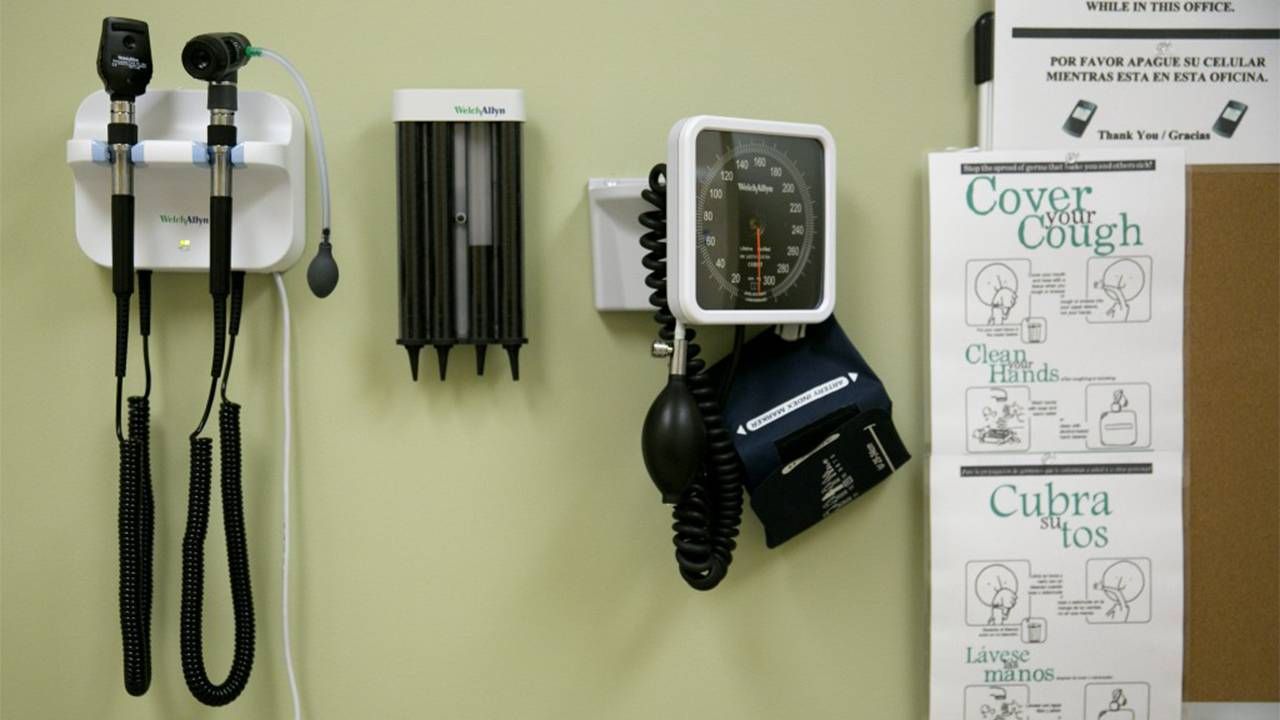Why Translation Services for Health Care Are Critical for Older Adults
Since language barriers can prevent access to quality health care, translation services are vital for older adults with limited proficiency in English
As older adults age, it's only a matter of time before they come into contact with the health care system. And a strong health care system is necessary to ensure that the needs of the aging population are met. But is it reaching those who need it most?

Even under regular circumstances, a hospital visit can be nerve-wracking. For 73-year-old Josefa Hidalgo (her name has been changed to protect privacy), it has been a frustrating and alienating experience due to the language barrier.
Josefa primarily speaks Hiligaynon, a language spoken in the Western Visayas region of the Philippines. She lives with her 42-year-old son Eric (his name has been changed to protect privacy), and his family, who had settled in the U.S. about a decade prior.
Apart from Josefa, Eric's whole family is fluent in English.
Josefa is part of a growing group of older adults who have limited English proficiency (LEP). The advocacy group Justice in Aging reports that there are approximately 5 million older adults in America who are LEP.
Studies have shown that LEP older adults are at significant risk of poor health outcomes and often lack access to health care services compared to their English-speaking counterparts, making it all the more crucial to remove language barriers in order to access appropriate care.
Health Care Hurdles for LEP Older Adults
LEP older adults are often first-generation immigrants or refugees who came to the U.S. later in life and have not had the opportunity to attain English fluency through work or education.
This presents a unique set of challenges: They are more likely to experience difficulties acculturating or adapting to American society than younger immigrants. Studies have also shown that LEP older adults report higher rates of depressive symptoms than those who can speak English.
"It was easy to tell the doctor what my mother was saying. But the other way around could get confusing."
The language barrier remains the primary obstacle to providing LEP older adults with equitable health care. There is a high potential for health conditions to be left undetected or misdiagnosed without clear communication between patient and doctor. It can lead to wrong decisions when it comes to treatment, with the possibility of causing severe harm.
Furthermore, LEP individuals may be less likely to seek health care if it is not available in a language they understand.
The Role of Translators in Health Care
It should come as no surprise, then, that language assistance and translation services play a pivotal role in ensuring that LEP older adults can access the health care they need. But it's hardly straightforward.
"It was easy to tell the doctor what my mother was saying," says Eric. "But the other way around could get confusing. Like when talking about a medical term or how a medicine worked, sometimes we had trouble translating the doctor's explanation."
On a friend's recommendation, Eric looked for professional language services to help interpret for Josefa during medical appointments. Health care services in their area did have provisions for medical language assistance, but Hiligaynon wasn't one of the available languages at the time.
That's how Eric came into contact with our translation services company, Tomedes. Apart from needing the assistance of someone who was a native Hiligaynon speaker, his family also needed someone who could explain the medical terms and procedures clearly.
"As America's aging population continues to grow more diverse, the need for language assistance and translation services is on the rise."
Since we have a wide roster of language professionals from around the world, we were able to match Josefa with someone who met the necessary qualifications.
Those who specialize in providing language services in a medical setting are required be fluent in the necessary languages, as well as have a broad knowledge of medical terminology and health care procedures. They must also have a good grasp of what they are communicating, otherwise they run the risk of making mistakes, such as omitting important details or mistranslating key terms.
A language communication assistant who is a native speaker of the LEP individual's language has the advantage of knowing potential cultural issues concerning health care that could become a barrier and help health care providers deal with them accordingly.
Another crucial skill for language assistants is the ability to deliver sensitive information properly. They may have to deliver bad news, so it's important that they can convey this in both a professional and empathetic manner.
Key Takeaways
As America's aging population continues to grow more diverse, the need for language assistance and translation services is on the rise. Health care is a basic human right, and language is an important factor in ensuring fair access to America's health care system, so no one is left behind.
Medicare Statistics on LEP Americans 65+
The U.S. Census Bureau draws on information about enrolled Medicare beneficiaries (people 65+) to determine LEP demographics among the older population.Here are a statistics that may help build a better picture:
- In 2014, LEP older adults numbered about 4 million, or 8% of enrolled beneficiaries. The number has increased since then due to the influx of migrants and refugees.
- The three states with the highest number of LEP Medicare beneficiaries are California, Hawaii and New York. An overwhelming majority of LEP older adults live in urban areas.
- Spanish-speaking older adults constitute 52% of the total number, with those who speak other languages such as Chinese, Vietnamese and Tagalog each coming in at 5% or less.
- The distribution differs by state, however. For example, there is a higher proportion of Arabic speakers in Michigan at 25%, compared to 22% for Spanish. In Hawaii, the majority of LEP beneficiaries speak Ilocano (which is spoken in the Philippines), Japanese or Tagalog.

Ofer Tirosh is the CEO of Tomedes, a translation services provider with a diverse roster of language professionals and a decade of expertise in language solutions for healthcare and other industries.
Read More

